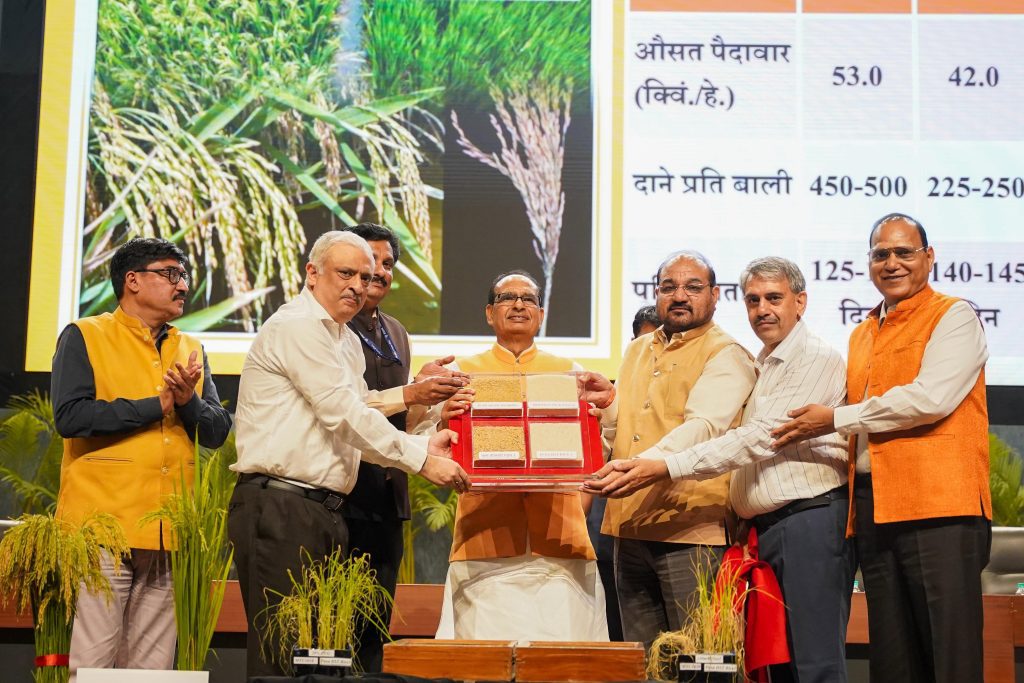
India Releases Two Genome-Edited Rice Varieties
May 7, 2025| |
India's first genome-edited rice varieties, DRR Rice 100 (Kamala) and Pusa DST Rice 1, developed using genome editing technology based on CRISPR-Cas, were launched by Union Agriculture Minister Shri Shivraj Singh Chouhan at Bharat Ratna C. Subramaniam Auditorium, NASC Complex, New Delhi on May 4, 2025. With this release, India has become the first country in the world to develop genome-edited rice varieties.
The new genome-edited rice varieties were developed by the Indian Council of Agricultural Research (ICAR). They hold the potential for revolutionary changes in higher production, climate adaptability, and water conservation. "Under the leadership of Prime Minister Shri Narendra Modi, India has achieved a historic milestone in scientific research," said Shri Shivraj Singh Chouhan during the launch of the genome-edited rice varieties.
The DRR Rice 100 (Kamala) variety, derived from Samba Mahsuri, was developed by ICAR-IIRR. It has improved tolerance to drought, salinity, and climate stresses, has a 19% increase in yield, a 20% reduction in greenhouse gas emissions, and a saving of 7,500 million cubic meters of irrigation water. Pusa DST Rice 1, developed by ICAR-IARI, can increase yields by 9.66% to 30.4% in saline and alkaline soils, with the potential for up to a 20% increase in production.
For more details, read the news article on the ICAR website.
| |
Biotech Updates is a weekly newsletter of ISAAA, a not-for-profit organization. It is distributed for free to over 22,000 subscribers worldwide to inform them about the key developments in biosciences, especially in biotechnology. Your support will help us in our mission to feed the world with knowledge. You can help by donating as little as $10.
-
See more articles:
-
Plant
- Gene-edited Rice Provides Insights into Abiotic Stress Resistance
- [IMPORTANT UPDATE] Save the Date: 8th Asian Short Course on Agribiotechnology, Biosafety Regulation, and Communication
- India Releases Two Genome-Edited Rice Varieties
- UC Davis Develops Wheat with Reduced Gluten Proteins
-
Animal
- Researchers Use Salmon DNA to Develop Cold-Tolerant Tilapia
- Gene-Edited PRRS-Resistant Pigs Get US FDA Approval
-
Food
- 27 EU Agri-food Value Chain Partners Sign Joint Position Paper on NGT Traceability and Labelling
-
Environment
- Experts from UC San Diego Push Genetically Enhanced Crops for Carbon Dioxide Removal
-
Read the latest: - Biotech Updates (February 4, 2026)
- Gene Editing Supplement (January 28, 2026)
- Gene Drive Supplement (February 22, 2023)
-
Subscribe to BU: - Share
- Tweet

